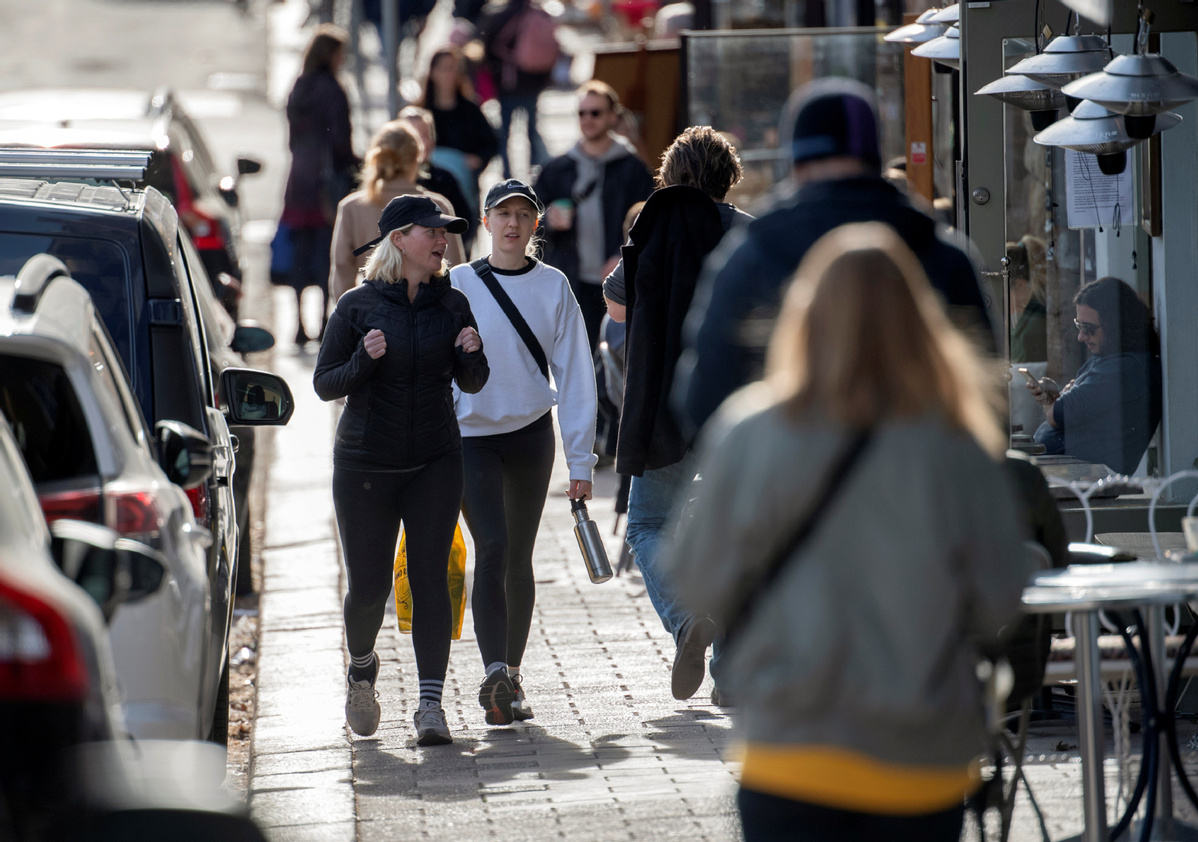
People pass by an outdoor restaurant, amid the coronavirus disease (COVID-19) outbreak in Stockholm, Sweden on April 20, 2020. (Photo: Agencies)
Nation's infectious diseases chief makes the claim as debate rages
Parts of Sweden are on track to achieve so-called herd immunity from the novel coronavirus-caused COVID-19 disease within weeks, according to the man who devised the country's unusual strategy for dealing with the outbreak.
Anders Tegnell said the Swedish capital, Stockholm, will be among the first places to develop such immunity. He told local media infection rates in the city of 2.4 million people have already started to slow, because locals have developed resistance to the disease.
"According to our modelers, we are starting to see so many immune people in the population in Stockholm that it is starting to have an effect on the spread of the infection," he said.
He predicted herd immunity, the stage when enough people have immunity to a disease to make it difficult for the virus to infect new victims, will be achieved "some time in May".
Sweden has had relatively few restriction in comparison to other nations.
The Scandinavian country in northern Europe is massive and has a population of only 10 million people and a density of 22 people per square kilometer, which is one of the lowest in the world, a factor that has allowed it to develop its own way of fighting the COVID-19 outbreak.
The nation has allowed primary and secondary schools to remain open and has not closed its borders. In addition, people have not been asked to stay indoors.
The result has been a relatively uninhibited spread of the disease and a fairly high death rate. As of this weekend, Sweden had 13,822 confirmed cases and 1,511 deaths. But it also had a fast-developing immunity in the general population.
Tegnell said a large proportion of the nation's deaths had happened in the nation's care homes for the elderly, something he said could have been better mitigated.
The nation is now waiting to see whether its bold approach works in the long run.
"These are mathematical models, they're only as good as the data we put into them," he said. "We will see if they are right."
United States President Donald Trump has attacked Sweden's approach, saying during a White House briefing that the nation had been "suffering very gravely… very, very badly".
Trump's criticism solicited a response from Sweden's foreign minister, Ann Linde, who said: "We are doing roughly what most other countries are doing, but we are doing it in a different way. No lockdown and we rely very much on people taking responsibility themselves."
Linde insisted Sweden was not aiming for herd immunity but that it had simply devised policies that were right for its specific situation.
"That means that some countries think we are not doing anything, but we are doing what is right for Sweden," she said.
Commentators have said Sweden has adopted a Scandinavian approach that plays down the state's role and emphasizes the role of the individual.
Prime Minister Stefan Lofven said last month in a televised address: 'We who are adults need to be exactly that: adults. Not spread panic or rumors. No one is alone in this crisis, but each person has a heavy responsibility."
But Sweden's approach has drawn criticism from the World Health Organization, which told broadcaster CNN it was "imperative" that the nation "increases measures to control the spread of the virus, prepare and increase capacity of the health system to cope, ensure physical distancing, and communicate the why and how of all measures to the population".


